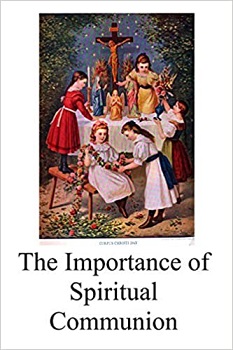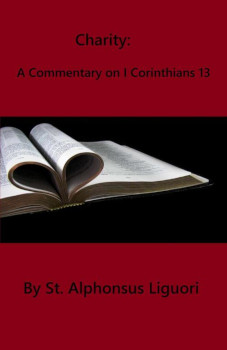January 2023: Olive Tree

Volume VII/Issue 10/January 2023


From The Editorial Desk

Thoughts on New Year
The feast of the circumcision of the Lord reminds us of the importance of having a new self.
The following are things we need to change in order to prosper :
C - complacency. Let us not be content with minimal effort. Let us aim high. Strive for excellence. Mediocrity is a no-no for Christians.
H - habit and vices. Let us erase laziness and manana habit, like procrastination.
A - anxiety or doubts. "I cannot do it."
N - negative mindset. Remember, negative thinking attracts negative results.
G - grudges. We blame others. We always complain. We complain about the food, the traffic, our work.
E - excuses. "I'm old." "I'm not trained." "I'm not well equipped." "I'm poor."
This year, if we wish to be happy, let us change the above attitudes and we will be happy.

Unchanging Love
Perhaps you’ve heard of the Christian farmer who had painted on his weather vane these words: “God Is Love.”
His neighbor, a skeptical soul, asked, “Do you mean that God’s love changes like the wind does?” “No,” replied the farmer, “I mean that God loves me no matter which way the wind blows.”
Friend, there are a lot of folks who need to learn that lesson. God is love—no matter which way the wind blows. When you’re poor, God loves you. When you prosper, He still loves you. When you succeed, God loves you. When you fail, He is still there with His love.
It’s nothing but a trick of the Devil to make us feel that God doesn’t love us at certain times. If He loves us sometimes, He must love us at all times, for He never changes. Love never fails and God is love.
Yes, God loves you even when you don’t love yourself. He believes in you even when you lose faith in yourself. He sees the end from the beginning while you and I see only our present success or failure.
I’m glad that God loves me! I’m glad that He loves you! If you need some scriptural proof to help you believe the fact of God’s unchanging love, be sure to read and reread the stirring story of the Prodigal Son as recorded in chapter 15 of the Gospel according to Luke.
You will see that the father in the story loved his son when he was a good son working at home. But he still loved him even when he became rebellious and demanded his part of the inheritance. This love for his son continued even though the boy broke his father’s heart through riotous living in the far country of sin.
Time passed, but the father’s loving heart still yearned to see the face of his Prodigal Son.
One day the elderly man gazed hopefully down the road, and sure enough, his eyes weren’t deceiving him! It was his son, all right! He ran to him, and the son did the same thing. Oh, what a reunion they had!
There wasn’t one word of condemnation from the father—love is quick to forgive and slow to condemn. The loving father prepared a feast and ordered a new wardrobe for his son who stood there in rags, physically and spiritually.
You see, God’s love is like that father’s love. We, like the Prodigal Son, may exchange true love for selfish rebellion. But God’s love never changes. Though we may wander far away, His eye still follows us. His Holy Spirit still seeks us. And if we return, His mercy will forgive us. All you have to do is come home.
One Man tells an experience from his boyhood years. One day he committed a serious offense; and when his strict but loving father heard about it, he said, “Son, no one can commit such an act and still sleep under my roof. You must spend the night in the barn.”
The young boy knew better than to argue with his father. So, that night he prepared a bed for himself in the hayloft. But he couldn’t sleep. He tossed and turned. Waves of guilt swept over his heart as he thought of the wrong he had committed and the way he had grieved his godly father. Finally, in the stillness of the midnight hour, he heard the sound of someone coming up the ladder to the hayloft. He peered through the shadows, and there was the dark outline of his father’s body.
“Are you sleeping?” asked the father quietly. “No, Dad,” the boy replied.
“Well, I can’t sleep either,” confessed the father. “Now, don’t think I’m changing my mind about yourpunishment. As I said, anyone who does such a vile thing can’t sleep under my roof. But I didn’t say that I couldn’t sleep with you. So, move over, Son. Put your head on my arm and let’s have some sleep.”
That young boy did just that—and went to sleep in a few minutes. All was well—his father still loved him!
Yes, God still loves you. He cannot stand your sin, but Christ has borne the punishment for your sin. If you will trust in Him, God will come down and dwell with you. When you lay your sin-weary head on His loving arm, you will then be able to say, “I have found rest for my soul”
A 13 Year Old Who Was Found Faithful
One of the most forgotten and overlooked Saints on our Traditional Church calendar is certainly Saint Agnes of Rome, the great Virgin and Martyr, a mere 13 year old girl at the time of her death.
Saint Agnes was killed for the sole reason that she professed the Catholic faith. She is highly praised by all of the Church Fathers. The family of Constantine built a beautiful Basilica at her tomb in Rome. The original Mass for her Feast in the Gregorian Sacramentary contained a magnificent preface which is unfortunately not found in our Traditional missals today.
Her foster sister Saint Emerentiana, yet another Virgin and Martyr, January 23, was stoned to death by local pagans when she was found praying at the tomb of Saint Agnes.
In addition Saint Agnes is one of the very few figures in Catholicism to be honored with two Feast days; her second being January 29th. This second date is centered around the fact that Saint Agnes is said to have appeared to her parents eight days after her death. January 28th also celebrates the earthly birthday of the saint.
The Church notes here that Saint Agnes is celebrated because her entire short life abounded in Divine graces. She is the patron saint of young girls.
She was born in 291 and died in 304 AD.
Her family was known to be wealthy, and because of this, or at least in part of this, Agnes was highly desired as a spouse. Many of the eligible men in her community openly chased after her. However, she had made a promise to Heaven to never betray her virginity. She hated sin more then death. She would often repeat that Jesus Christ remained her only Spouse. This would enrage the very men she spurned. And thus her name was given to the cruel and pagan governmental officials in Rome, identifying Agnes as a devout Catholic.
She was eventually condemned to death by the corrupt Roman governor, Procop.
Saint Agnes faced her martyrdom with joy and courage, resembling a beautiful bride on her wedding day.
May all those who are faithful to the Word of God, handed down to us from the early Fathers and proclaimed by our Bishops and Priest, be encouraged by the example given to us by Saint Agnes.
Let us live out the our Catholic faith on a daily basis in the face of the apostasy, entrenched as it is in the city of Rome, home to Saint Agnes. May all of us, who are able, have the grace to attend Mass on January 21st and 28th.

Prepare ye the way of the Lord: make straight His paths.
—Gospel (Lk. 3:4)
It is good and praiseworthy to discipline oneself, to master one’s passions, to act according to reason enlightened by the Faith. In a word, it is good to observe a certain austerity in one’s life, but once we are at that point, there is a new trap to avoid, that of pride.
Scarcely have we begun to conquer certain of our faults than we start to consider ourselves superior to others. In reality, as soon as we are too satisfied with ourselves, too sure of ourselves, we begin to leave the path of virtue.
As Bourdaloue said, “We want to practice Christianity in all its severity, but we want to have the honor of doing so. We renounce certain enjoyments that religion condemns, but we encourage ourselves by the glory of having renounced them. We mortify ourselves in secret, but we do it so well that the secret soon stops being secret, and we manage by a hundred hints to make it public, all the while managing to preserve the semblance and appearance of modesty.”
To avoid this pitfall of pride, St. Bernard chose as a motto: “Love to be unknown.” That is the path which Jesus has hidden from the wise and the prudent to reveal it to the little ones.
Canceling Christmas, the War Continues
If the Left had its way, there would be no Christmas, no Easter and no Thanksgiving. If they had their way, anything related to Jesus would be canceled. In fact, [in] a…memo…in King County in Washington State, the [city] of Seattle…the…Department of Human Resources…write[s]: “Some employees may not share your religion, practice any religion, or share your enthusiasm for holiday decorations. Displays of religious symbols may only be displayed in an employee’s personal workspace. Religious symbols should not be displayed in or as a background to an employee’s virtual workspace.”… Talk host Jason Rantz adds… “You can celebrate LGBT Pride and wear a Black Lives Matter button throughout your day as a King County employee. But you better not show a nativity set or menorah on your digital workspace or your home office.”
Educators “Know Better Than Anyone” What Kids “Need to Learn,” Says Teachers’ Union
The largest national teachers’ union in the country took to social media…to reaffirm its contempt for parents and taxpayers. In a… tweet, the National Education Association (NEA) suggested that the same people who advocated for stultifying school closures, masking and the use of experimental vaccines in children “know better than anyone.”… The NEA represents three million “educators,” including public school teachers, staffers at colleges and universities and aspiring indoctrinaires. More than just a teachers’ union, the NEA is a partisan force that doesn’t simply seek to “advance the cause of public education,” but supports abortion; amnesty for illegal aliens; gun bans; race-based admissions and hiring; LGBTQ activist-dictated pronoun use; statehood for the District of Columbia; making race the crux of all educational considerations; and BLM.… The NEA gave $6.1 million to the New Jersey Education Association, which took out attack ads on parents who were critical of critical race and gender theories.
SCOTUS Hears Free Speech Case for Creative Web Designer
The U.S. Supreme Court will hear oral arguments…regarding a Denver-area website designer subject to a Colorado state law that censors and coerces the speech of creative professionals whose religious beliefs do not conform to state accepted beliefs. …Colorado native Lorie Smith…creates unique and beautiful websites for her clients and started her business in 2012 to exercise creative freedom. Smith serves everyone but cannot use her design skills and creativity to express messages that violate her deeply held religious beliefs. However, under Colorado’s Anti-Discrimination Act, Smith could be punished simply for offering to create websites only celebrating weddings consistent with her beliefs that marriage is between one man and one woman. In addition, the law acts as a gag order that prevents Smith from expressing on her website the reasons why she only creates messages celebrating certain ideas. Ironically, Colorado’s public accommodation law allows secular artists but not religious ones like Smith to make “message-based refusals.”… In the amicus brief, Liberty Counsel presents the fact that artistic expression is pure speech that is fully protected by the First Amendment and must be protected from censorship or compulsion, particularly when the message is an unpopular one.
The Funny Pharmacy
A joyful mind maketh age flourishing: a sorrowful spirit drieth up the bones. - Proverbs 17:22
The Pope Speaks: Pope St. Gregory the Great
The Visit of the Magi

When Jesus was born in Bethlehem of Judea, in the days of Herod the king, behold, wise men from the east came to Jerusalem, saying, "Where is the king of the Jews who has just been born? For we have seen his star in the east, and come to worship him." Hearing this, King Herod was troubled, and all Jerusalem with him. Bringing together all the princes of the priests and the scribes of the people, he asked them where the Christ was to be born. They said to him, "In Bethlehem of Judea, as it was written by the prophet," And you, Bethlehem, the land of Judah, you are certainly not the least of the cities of Judah, for from you will come the leader who will lead my people Israel. "Then Herod, having called the wise men in secret, learned from them the precise moment when the star had appeared to them, and sending them to Bethlehem, he said to them," Go and inquire carefully about child, and when you find it, tell it to me, so that I, too, may go and adore it."
After hearing the king, they went away. And behold, the star which they had seen in the east was before them, until it stopped above the place where the child was. At the sight of the star, they were filled with great joy. And when they came into the house, they found the child with Mary his mother; and worshiping, they worshiped him. Then, opening their treasures, they offered him a gift of gold, frankincense and myrrh. And warned in a dream not to return to Herod, they returned to their country by another way.
As you have just heard, dear brothers, in the gospel read to us, a king of the earth was troubled at the birth of the King of Heaven. For earthly greatness is confounded when heavenly majesty is revealed.
We must look for why it was an angel who appeared to the shepherds in Judea at the birth of the Redeemer, while it was not an angel, but a star who led the wise men from the East to worship him. This comes from the fact that the Jews knowing how to use their reason, it is a reasonable living being, here an angel, who was to inform them. The pagans, on the contrary, who did not know how to use their reason, are brought to the knowledge of the Lord, not by words, but by signs. Hence Paul's words: "Prophecies are given to believers, not to unbelievers, signs to unbelievers, not to believers" (1 Cor 14:22). The prophecies are given to the first as believers, not unbelievers. And it is as unbelievers that the second, unbelievers, receive signs.
It should also be noted that the preaching of the Apostles to these Gentiles is about our Redeemer reaching adulthood, while the announcement to the Gentiles by a star concerns Jesus little child, who still does not use his human body to speak . It was well in keeping with the reason that the preachers make known to us by their words the Lord when He spoke, and that the elements preach Him by their silence when He did not speak yet.
2. But in all the signs that marked the birth and death of the Lord, we must consider the hardness of heart of certain Jews, since neither the grace of the prophecies nor the miracles made them recognize the Lord. For all the elements have attested the coming of their Creator. And to speak of it in the manner of men, the heavens recognized in him their God, since they hastened to send him a star. The sea has recognized it, which offered itself at its feet as a solid path (see Mt 14:25). The earth recognized it, it trembled when the Lord died (see Mt 27:51). The sun has recognized him, which is the rays of his light (Mt 27:45). The rocks and the walls recognized him, they who split at the moment of his death (Mt 27: 51). Hell finally recognized him, he who returned the dead he held (see Mt 27, 52). And yet, the one whom all insensible elements have perceived as their Lord, the hearts of Jews still unfaithful do not recognize him as their God, and harder than stones, they do not wish to open themselves to repentance; they refuse to confess the one whom the elements, as we have said, have proclaimed God by the prodigies or the lacerations with which they have been the object.
The culmination of their guilt is that the one they despise once born, they learned long ago that it would be born. And they knew not only that he would be born, but also where he would be born. When questioned by Herod, they point out to him the place of the birth of the Savior, whom they learned through the authority of Scripture. And they put forward the proof that Bethlehem was appointed for the honor of seeing the birth of the new king, so that their knowledge becomes for them a cause of condemnation, at the same time as it brings relief to our faith. Isaac, blessing his son Jacob, well symbolized these Jews, who, though blind, prophesied: he did not see his son in the present moment, but foresaw for him many things in the future; just as the Jewish people, who were filled with the spirit of prophecy, but blind, did not recognize in the present moment the one whom he had predicted so much for the future.
3. Once the birth of our King is known, Herod resorts to trickery for fear of being deprived of his earthly kingdom. He asks to be told where the child will have been found; he pretends to want to worship him, with the intention of killing him if he can find him. But what can human malice do against a divine project? For it is written, "There is no wisdom, there is no prudence, there is no plan against the Lord" (Pr 21, 30). Indeed, the star appeared to the magi leads them; they find the newly born King, offer him presents, and are warned in a dream that they must not return to Herod. Thus it happens that Herod can not find that Jesus he seeks. He represents in his person the hypocrites, who, pretending to seek the Lord, never get to find him.
4. In this regard, it must be known that according to the Priscillian heretics, every man is born under the sign of a star. To support their mistake, they rely on the fact of the new star that arose when the Lord appeared in the flesh, and they think that this star thus appeared has settled its destiny. But let us weigh the words our gospel uses about this star: "Until it stopped above the place where the child was." Since it is not the child who ran to the star, but well, if we can say, the star to the child, it is not the star that fixed the destiny of the child, but this newborn child who stared at the fate of the star. That the faithful, however, exclude from their minds that there is a destiny. For life is governed only by the one Creator who gave it to men. Man was not created because of the stars, but the stars because of the man. Thus, to say that a star fixes the fate of a man is to pretend that man is under the power of his own slaves. When Jacob, at the exit of the maternal breast, held his brother's foot in his hand, so that the first to be born could come out completely, the next one had to start doing it. And yet, although both of their mothers gave birth at exactly the same time, their lives were all different.
5. But to this, astrologers are accustomed to reply that the influence of a star acts at a very precise moment. We reply that the time of a birth is long. So if the appearance of the sky changes every moment, they will have to give a new horoscope for each part of the body of the newborn.
Astrologers are also accustomed to say that one who is born under the sign of Aquarius is destined by lot to exercise in this life the job of fisherman. It seems, however, that there are no fishermen in Gétulie. Who will pretend that where there is no fisherman, no one is born under the sign of Aquarius? Astrologers still insist that children born under the sign of Libra are future bankers; but many countries and peoples do not have bankers. It is therefore necessary for them to recognize, either that this sign of the zodiac is missing from them, or that its supposed effect is not fatal. On the other hand, among the Persians and the Franks, the transmission of royalty is hereditary. Who can tell how many other children are born as slaves at exactly the same instant as this or that king? And yet the sons of kings born under the same star as their slaves enter the crown, while those slaves begotten at the same time will die in their servitude. We said all this briefly about the star, so as not to appear to be silenced without refuting the stupidity of astrologers.
6. Magi offer gold, frankincense and myrrh. Gold suited a king well; incense was presented to God as a sacrifice; and it is with myrrh that one embalms the bodies of the deceased. The magi proclaim, by their symbolic gifts, who they are worshiping. Here is gold: it is a king; here is the incense: it is a God; here is myrrh: he is a mortal. There are heretics who believe in his divinity without believing that his reign extends everywhere. They offer him good incense, but do not want to offer him gold too. There are others who recognize his kingship but deny his divinity. They offer him gold, but refuse to offer him the incense. Others finally confess both his divinity and his kingship, but deny that he has assumed mortal flesh. These offer him gold and incense, but do not want to offer him myrrh, symbol of the mortal condition he has assumed. For us, offer gold to the Lord who has just been born, confessing that he reigns in all places; offer him incense, recognizing that he who appeared in time was God before all times; offer him myrrh, recognizing that he whom we believe to be impassive in his divinity has also become mortal in assuming our flesh.
But gold, frankincense and myrrh can also be understood differently. Gold symbolizes wisdom, as Solomon testifies: "A desirable treasure lies in the mouth of the wise man" (Pr 21, 20, from the Septuagint). Incense burned in honor of God designates the power of prayer, as the psalmist testifies: "Let my prayer rise before your face like incense." (Ps 141: 2). As for myrrh, it represents the mortification of our flesh; so the holy Church says, concerning her servants fighting for God until death: "My hands have distilled myrrh" (Ct 5, 5). To the newly born king, therefore, we offer gold if we shine before it the brilliance of wisdom from above. We offer incense if, in the holy ardor of our prayer, we consume our carnal thoughts on the altar of our heart, thus allowing our desires of Heaven to spread for God their pleasant odor. We offer myrrh if we mortify the vices of the flesh by abstinence. For myrrh, as we have said, prevents the dead flesh from rotting. But to enslave this mortal body to luxurious debauchery is to let a dead flesh rot, as the prophet says about certain men: "The beasts of burden have rotten in their dung" (Jl 1, 17). That beasts of burden rot in their manure means that carnal men end their lives in the stench of lust. We offer to God the myrrh when, by the aromatics of our continence, we prevent the lust from making this mortal body rot.
7. The Magi still give us a very important lesson by returning to their country by another way. Indeed, what they do on the warning they have received tells us what we need to do. Our country is paradise, and once we know Jesus, we are forbidden to return to it by the way we followed in coming. Because we have moved away from our country by pride, disobedience, the pursuit of visible goods and the greed to taste the forbidden foods. But to return to it, one needs tears, obedience, contempt for visible goods and control of the appetites of the flesh. It is therefore by another way that we return to our country, since we are far from the joys of paradise by pleasures, we are brought back by lamentations.
Therefore it is necessary, dear brothers, that always dwelling in fear and always in expectation, we have before our eyes of heart, on the one hand, our guilty actions, and on the other, the extreme rigor of judgment. Consider that the rigorous Judge will come; he threatens us with judgment, but he remains hidden. He strikes sinners with horror, and yet he is still patient. If it differs from coming, it is to find less to condemn. Expose our faults in tears, and in the words of the psalmist, "let us hasten to present ourselves before him by confession" (Ps 95, 2). Let us not take in any of the delusions of pleasure or the seductions of vain joy. Very close, indeed, is the Judge who affirmed: "Woe to you who laugh now, because you will grieve and weep" (Lk 6, 25). Solomon also said, "Laughter will mingle with sorrow, and joy will end in mourning." (Pr 14, 13). And also: "I kept laughing for a mistake, and said to joy: why do you let yourself be trapped?" (Ecc 2, 2). And again: "The heart of the wise is in the place of sorrow, and the heart of fools in the place of joy." (Ecc 7, 4)
Let us have great fear of the commandments of God, in order to celebrate in the truth his solemn feast. For the acceptable sacrifice to God is the pain inspired by sin. The psalmist attests to it: "The sacrifice in honor of God is a contrite spirit" (Ps 51:19). Our past sins have been washed away by baptism; but since then we have committed many others, and we can no longer be washed by baptismal water. Since even after baptism, we have defiled our lives, baptize our conscience with our tears. Thus, we will return our country by another way. Property has removed us by their attraction; that the evils bring us back there by their bitterness, with the help of Our Lord.


St. Francis de Sales' Introduction to the Devout Life

CHAPTER XI
Third Meditation - Of the Gifts of God.
Preparation.
1. PLACE yourself in the Presence of God.
2. Ask Him to inspire your heart.
Considerations.
1. Consider the material gifts God has given you—your body, and the means for its preservation; your health, and all that maintains it; your friends and many helps. Consider too how many persons more deserving than you are without these gifts; some suffering in health or limb, others exposed to injury, contempt and trouble, or sunk in poverty, while God has willed you to be better off.
2. Consider the mental gifts He has given you. Why are you not stupid, idiotic, insane like many you wot of? Again, God has favoured you with a decent and suitable education, while many have grown up in utter ignorance.
3. Further, consider His spiritual gifts. You are a child of His Church, God has taught you to know Himself from your youth. How often has He given you His Sacraments? what inspirations and interior light, what reproofs, He has given to lead you aright; how often He has forgiven you, how often delivered you from occasions of falling; what opportunities He has granted for your soul’s progress! Dwell somewhat on the detail, see how Loving and Gracious God has been to you.
Affections and Resolutions.
1. Marvel at God’s Goodness. How good He has been to me, how abundant in mercy and plenteous in loving-kindness! O my soul, be thou ever telling of the great things the Lord has done for thee!
2. Marvel at your own ingratitude. What am I, Lord, that Thou rememberest me? How unworthy am I! I have trodden Thy Mercies under foot, I have abused Thy Grace, turning it against Thy very Self; I have set the depth of my ingratitude against the deep of Thy Grace and Favour.
3. Kindle your gratitude. O my soul, be no more so faithless and disloyal to thy mighty Benefactor! How should not my whole soul serve the Lord, Who has done such great things in me and for me?
4. Go on, my daughter, to refrain from this or that material indulgence; let your body be wholly the servant of God, Who has done so much for it: set your soul to seek Him by this or that devout practice suitable thereto. Make diligent use of the means provided by the Church to help you to love God and save your soul. Resolve to be constant in prayer and seeking the Sacraments, in hearing God’s Word, and in obeying His inspirations and counsels.
Conclusion.
1. Thank God for the clearer knowledge He has given you of His benefits and your own duty.
2. Offer your heart and all its resolutions to Him.
3. Ask Him to strengthen you to fulfil them faithfully by the Merits of the Death of His Son. OUR FATHER, etc. Gather the little spiritual bouquet.
Saints from East and West

January 14 - Saint Hilary of Poitiers
Saint Augustine, who often urges the authority of 5t Hilary against the Pelagians, styles him "the illustrious doctor of the churches." Saint Jerome says that he was a "most eloquent man, and the trumpet of the Latins against the Arians;" and in another place that "in Saint Cyprian and Saint Hilary, God had transplanted two fair cedars out of the world into His Church."
Saint Hilary was born at Poitiers, and his family was illustrious in Gaul. He himself testifies that he was brought up in idolatry, and gives us a detailed account of the steps by which God conducted him to a knowledge of the faith. He considered, by the light of reason, that man, a moral and free agent, is placed in this world for the exercise of patience, temperance, and other virtues, which he saw must receive a recompense after this life. He ardently set about learning what God is, and quickly discovered the absurdity of polytheism, or a plurality of gods: he was convinced that there can be only one God, and that He must be eternal, unchangeable, all-powerful, the first cause and author of all things. Full of these reflections, he met with the Christian scriptures, and was deeply impressed by that sublime description Moses gives of God in those words, so expressive of His self-existence, I AM WHO AM: and was no less struck with the idea of His supreme dominion, illustrated by the inspired language of the prophets. The reading of the New Testament completed his inquiries; and he learned from the first chapter of Saint John that the Divine Word, God the Son, is coeternal and consubstantial with the Father. Being thus brought to the knowledge of the faith, he received baptism when somewhat advanced in years.
Hilary had been married before his conversion, and his wife, by whom he had a daughter named Apra, was yet living when he was chosen bishop of Poitiers, about the year 350. He did all in his power to escape this promotion; but his humility only made the people more earnest in their choice; and, indeed, their expectations were not disappointed, for his eminent qualities shone forth so brilliantly as to attract the attention not only of Gaul, but of the whole Church. Soon after he was raised to the episcopal dignity he composed, before his exile, a commentary on the Gospel of St Matthew, which is still extant. That on the psalms he compiled after his banishment. From that time the Arian controversy chiefly employed his pen. He was an orator and poet. His style is lofty and noble, with much rhetorical ornament, somewhat studied; and the length of his periods renders him sometimes obscure: Saint Jerome complains of his long and involved sentences and tragic manner - the old rhetorical tradition was not yet dead. Saint Hilary solemnly appeals to God that he accounted it the great work of his life to employ all his faculties to announce Him to the world, and to excite all men to the love of Him. He earnestly recommends beginning every action and discourse by prayer. He breathes a sincere and ardent desire of martyrdom, and discovers a soul fearless of death. He had the greatest veneration for truth, sparing no pains in its pursuit and dreading no dangers in its defence.
The Emperor Constantius and a synod at Milan in 355 required all bishops to sign the condemnation of Saint Athanasius. Such as refused to comply were banished, among whom were Saints Eusebius of Vercelli, Lucifer of Cagliari, and Dionysius of Milan. Saint Hilary wrote on that occasion his "First Book to Constantius," in which he entreated him to restore peace to the Church. He separated himself from the three Arian bishops in the West: Ursacius, Valens, and Saturninus, and the emperor sent an order to Julian, surnamed afterwards the Apostate, who at that time commanded in Gaul, to enforce Saint Hilary's immediate banishment into Phrygia. Saint Hilary went into exile about the middle of the year 356, as cheerfully as another would take a pleasure trip, and recked nothing of hardships, dangers or enemies, having a soul above the smiles and frowns of the world and his thoughts fixed only on God. He remained in exile for some three years, which time he employed in composing several learned works. The principal and most esteemed
of these is that On the Trinity. The earliest Latin hymn-writing is associated with the name of Hilary of Poitiers.
The emperor, again interfering in the affairs of the Church, assembled a council of Arians, at Seleucia in Isauria, to neutralize the decrees of the Council of Nicaea. Saint Hilary, who had then passed three years in Phrygia, was invited thither by the semi-Arians, who hoped that he would be useful to their party in crushing those who adhered strictly to the doctrine of Arius. But no human considerations could daunt his courage. He boldly defended the decrees of Nicaea, till at last, tired out with controversy, he withdrew to Constantinople and presented to the emperor a request, called his "Second Book to Constantius," begging permission to hold a public disputation about religion with Saturninus, the author of his banishment. The issue of this challenge was that the Arians, dreading such a trial, persuaded the emperor to rid the East of a man who never ceased to disturb its peace. Constantius accordingly sent him back into Gaul in 360.
Saint Hilary returned through Illyricum and Italy to confirm the weak. He was received at Poitiers with great demonstrations of joy, and there his old disciple, Saint Martin, ere long rejoined him. A synod in Gaul, convoked at the instance of Hilary, condemned that of Rimini in 359; and Saturninus, proving obstinate, was excommunicated and desposed. Scandals were removed, discipline, peace and purity of faith were restored. The death of Constantius in 361 put an end to the Arian persecution. Saint Hilary was by nature the gentlest of men, full of courtesy and friendliness to all: yet seeing this behaviour ineffectual, he composed an invective against Constantius in which he employed the severest language, probably for good reasons not now known to us. This piece was not circulated till after the death of the emperor. Hilary undertook a journey to Milan in 364 to confute Auxentius, the Arian usurper of that see, and in a public disputation obliged him to confess Christ to be the true God, of the same substance and divinity with the Father. Saint Hilary, indeed, saw through his hypocrisy; but Auxentius so far imposed on the Emperor Valentinian as to pass for orthodox. Hilary died at Poitiers, probably in the year 368.

Advice You Can Bank On
A Catholic Perspective On Finances
January 2023 – The Parables of the Prodigal Son and the Shrewd Manager (Luke 15:11-29, 16:1-13)
Luke 15: 11-29 describes the parable of the prodigal son. In it, the son who receives half of his father’s wealth uses it wastefully yet is received with welcome arms back to his father when he comes sauntering back, penniless. His father throws him a party, and the son who saved his inheritance is upset to have not had the same treatment.
Luke 16:1-13 is the story of the shrewd manager who is about to be fired for squandering his possessions. Right before he is about to be fired, he makes, what most would consider, a drastic last attempt to “save face” with his master’s debtors – he fraudulently writes them off. The manager’s master compliments him for his shrewdness.
In both of these parables, the focus is not of punishment for squandering and mismanagement, but reward for relationships rekindled, as in the parable of the prodigal son, and of creating friendships in the parable of the shrewd manager. These are somewhat surprising results to acting frivolously.
We have stressed in past articles on proper budgeting, saving for an emergency, and how to make more money if we need to. While all of those things are still true, the overarching theme we are striving for is proper stewardship; what we do with what we are given, while we are here. We are saving to eventually spend, not just for the sake of saving.
It is prudent to have money set aside for an emergency, and as we’ve talked about before, and a good starting amount is about $1000. Most insurance deductibles fall within that range, for example. For larger projects, or for a down payment on a house, however, $1000 wouldn’t be nearly enough. We are called to be a servant to the Lord, not our debtors. “The rich ruleth over the poor: and the borrower is servant to him that lendeth.” (Proverbs 22:7).
We might save for our children’s college, for a home for our family, or for a newer car. In each of these instances, we are saving to spend, and sometimes it’s for the benefit of someone other than ourselves entirely. There is an inherent relationship that is built upon our generosity, or the generosity of others when we give and receive. We are always grateful when receiving as are those who receive. This is especially noticeable this time of year.
In both stories of the prodigal son and the shrewd manager, Jesus does not say that frivolity and wealth is inherently bad. Rather, we see that proper stewardship and good relationships are both things that bring us closer to God – and should we squander ourselves, we should only seek to increase our dependence on God.
“No servant can serve two masters: for either he will hate the one, and love the other; or he will hold to the one, and despise the other. You cannot serve God and mammon.” (Luke 16:13).

 Family Matters
Family Matters
Encouragement for Fathers
We all need encouragement. I do not think this statement is controversial. The effort that life requires needs to be counterbalanced at times with encouragement, the support that inspires renewed confidence and a will to continue. While we all need it, the focus of this editorial is encouragement for fathers.
Probably the biggest question is how to find encouragement when we need it. Where do we go for it? And David was greatly afflicted: for the people had a mind to stone him, for the soul of every man was bitterly grieved for his sons, and daughters: but David took courage in the Lord his God. (1Samuel 30:6). The setting of this verse is the account of David and his warriors’ efforts to escape the clutches of King Saul while remaining at the same time in an uneasy alliance with the Philistines. While David and his men were away fighting, the Amalekites took David's city, Ziklag, and burned it with fire. When David and his men returned, they found their wives and children taken captive by the Amalekites. This was a terrible situation indeed.
But David went to the right source for encouragement. He went to the Lord his God. This is the best source of encouragement because in the Lord, a father will find companionship with the one that sticketh closer than a brother (Proverbs 18:24, also see John 15:15). A father who has his Father (Jehovah God) as his friend will find encouragement and strength during the most difficult times imaginable.
A father is a man with children, and if he is a real man, he is taking responsibility for raising them. Someone said it this way: "A father is a man who has snapshots in his wallet where his money used to be." A Christian father has an even higher goal: he is responsible for raising children that will serve the Lord and raise the next generation for Him. Is that not a real encouragement of itself?
Job is an example of a godly, faithful father. Job 1:1-5 gives us a picture of the life of Job before his great calamity befell him. Verse 4 mentions feasting “by houses every one in his day.” This is probably a reference to celebrating their respective birthdays. Although it does not explicitly say this, the implication is that Job joined his family in their birthday celebrations. He was a very busy man, but not too busy to join his children in their happiness. He was also a spiritual man with a heart of concern for the spiritual welfare of his children. This is shown by his regular sacrifices for his sons – Thus did Job continually. His spiritual connection with God held strong throughout his trial of faith, even though at times he questioned and challenged God because his finite mind could not conceive the reason for his suffering.
As a father places himself under the lordship of his Father, he will find that encouragement will come from other godly people in his life. Love extended to others from a true heart of compassion will return and encourage the giver. He that goeth forth and weepeth, bearing precious seed, shall doubtless come again with rejoicing, bringing his sheaves with him (Psalms 126:6).
Why do fathers need encouragement? Because fathers carry a heavy responsibility. Both the marriage and the function of the home are directly related to the leadership and vision of fathers. At times, because of the busyness of life and the loads that God calls them to carry, a father can easily allow himself to become distant from his children. But fathers need to be present and give emotional support when needed. Like as a father pitieth his children, so the LORD pitieth them that fear him (Psalms 103:13).
We Fathers cannot expect others to fill the places we do not wish or feel adequate to fill. We must do our best, recognizing that God chooses to use inadequate humans to build His Kingdom. Although we should also remember that God uses the brotherhood to supply what we lack, we cannot become careless and begin to assume on this. Each father needs to view fatherhood as a God-given responsibility. Keep persevering even when times get tough. Do not ever give up!
A Successful Dad
I may never be as clever,
As my neighbor down the street;
I may never be as wealthy,
As some other men I meet;
I may never have the glory,
That some other men have had;
But I've got to be successful,
As a little fellow's Dad.
There are certain dreams I cherish,
That I'd like to see come true;
There are things I would accomplish,
Ere my working day is through;
But the task my heart is set on,
Is to guide a little lad;
And to make myself successful,
As that little fellow's Dad.
I may never come to glory;
I may never gather gold;
Men may count me as a failure,
When my business life is told;
But if he who follows after,
Shall be manly, I'll be glad;
For I'll know I've been successful,
As that little fellow's Dad.
Let us encourage one another. But exhort one another daily, while it is called To day (Hebrews 3:13). A father who finds encouragement can then give encouragement and with the help of his Father God leave a legacy of faithfulness for future generations.

Lamp and Light Commentary

"Thy word is a lamp to my feet, and a light to my paths." (Psalms 119:105)
Genesis 2: What Are The Needs Of A Husband?
In chapter 2:24 of Genesis God declares that, “a man shall leave father and mother, and shall cleave to his wife......and they shall be two in one flesh.”
This is a great mystery. One might assume that a man and woman would enter the covenant of marriage with a thorough understanding of one another’s needs and how to meet those needs. Usually, however, this is not the case.
Your spouse has many needs. Even if he or she is not consciously aware of all of these needs, when they are unmet, your spouse will exhibit sorrow, confusion, and frustration. As the Lord shows you how to meet these needs, you can avoid strife and prosper as “co-heirs of the grace of life” (I Peter 3:7).
Ask the Lord to give you understanding and sensitivity as you seek to meet the needs of your spouse. Ask God to give your spouse grace and wisdom to meet these needs in your life, through Christ. Give your expectations to the Lord, and ultimately trust Him to meet all your needs. There are seven basic Need of a Husband and Wife. Because of time restraints, I cannot treat the subject with as much care as I would like. I would urge you to go to the Vatican in exile web site and then under “Resources” and then “Principles of Life”, look for the topics “basic needs of a woman”, and “basic needs of a man". You will find projects that can serve as tools to equip you to be a Godly husband and wife, and that will be a great asset in your marriage. That's “Vaticaninexile.com”...Then “Resource” page....and then “Principles of Life” page.
In our last post we saw the responsibility of the husband to nurture and cherish his wife, to instruct his wife in the scriptures, (that is what is meant in Ephesians when it says, “cleansing her by the laver of water in the word:”), and to meet her needs. You are to love your wife as you love yourself. (Ephesians 5:22-29, 33). As you gain insight about your wife’s needs, it is imperative that you take steps to fully meet those needs. As you love your wife as Christ loves the Church, she will be motivated to reverence you. (Ephesians 5:33.)
Now today's question is how can a wife meet the needs of her husband?
As a wife, you are uniquely qualified to fully meet your husband’s needs and cause him to “rejoice with the wife of thy youth” (Proverbs 5:18).
In His Word, God clearly establishes the responsibilities of a husband and a wife. Here are some references in scripture that you should look at. (Genesis 3:16, Ephesians 5:22-33, Colossians 3:18-19, and I Peter 3:1-7.) It is the wife’s responsibility to honor and reverence her husband.
Following is a description of seven basic needs of a husband, accompanied by ideas to help you to become a Godly wife.
As you gain insights into your husband’s needs, take steps to meet those needs.
1. A man needs a wife who is loyal and supportive.
Helping her husband fulfill his goals and dreams is a wife’s main responsibility. Remember that you are to support his vision—he establishes the goals and priorities for your family. A foolish wife will crush her husband’s spirit by resisting his decisions, and God will hold her accountable for disobedience to His instructions. (Ephesians 5:22-24.) If your husband’s goals are not in harmony with Scripture, you should make a wise appeal.
Realize that your husband’s perspective is different than yours.
A man’s goals often involve long-range achievement. Therefore, a man is willing to sacrifice short-term convenience in order to meet an important long-term goal. However, a wife’s perspective usually centers on short-term goals associated with her responsibilities in the family and home. During times of pressure, a wife should keep the “big picture” in mind. Accept difficult situations from God without giving Him a deadline to remove them.
Encourage your husband.
Encourage your husband not to give up on God-given goals. Urge him to verbalize his dreams and hopes, and give him your wholehearted support. Ask him how you can help him reach his goals. If your husband fails to set goals or give direction to you and your family, pray for him and trust God to work in his life. ( Proverbs 3:5-7.)
Be enthusiastic about your husband’s achievements. Sharing his excitement is more important than sharing his work. Your husband needs and wants your faithful, loyal, and enthusiastic support.
Believe in your husband—no matter what.
Loyalty can be demonstrated only in adversity. A husband needs to know that his wife is committed to him no matter what and that she will look first to him for counsel and direction. Use difficult times to reflect the depth of your commitment to your husband, and do not ask others for counsel without his permission.
A wife is never supposed to “take over.”
In response to pressures within the family or within a marital relationship, a foolish wife will take matters into her own hands. When you intrude into one area of responsibility, even with the “good” motive of meeting urgent needs, your husband will most likely surrender other responsibilities as well. Initially, it may appear that you succeed in fulfilling responsibilities that should be carried out by your husband. However, in the long run, the decision to usurp or ignore your husband’s responsibility to meet those needs will do much more harm than good. (Proverbs 14:1.)
It’s God’s job to convict your husband—not yours.
Purpose not to become your husband’s conscience. Wisely appeal wrong decisions, and then give him room to fail. Be loyal, faithful, and enduring. Trust in God to work everything together for good. ( Romans 8:28.)
Seek your husband’s advice first.
A wife should demonstrate loyalty to her husband’s wishes, goals, and standards. Therefore, when a need arises, you should seek your husband’s guidance and counsel first, especially in regard to family issues, rather than seeking advice from other family members and friends.
If you have questions about spiritual matters, you should first take them to your husband. If the two of you are unable to find the answers, then request help from wiser, more mature believers, such as your pastor, parents, or other mentors. (I Corinthians 14:35.)
Enjoy the privilege of physical intimacy.
God grants spouses full access to each other’s bodies for sexual gratification. “Let the husband render [conjugal rights to his wife, and the wife also in like manner to the husband."
"The wife hath not power of her own body, but the husband. And in like manner the husband also hath not power of his own body, but the wife."
"Defraud not one another, except, perhaps, by consent, for a time, that you may give yourselves to prayer; and return together again, lest Satan tempt you for your incontinency.” (I Corinthians 7:3-5; see also Ephesians 5:24 and Colossians 3:17-19). Resistance or indifference to your husband’s need for physical intimacy is the unspoken crushing of his spirit.
2. A man needs a wife who honors his leadership.
Scripture instructs a wife to reverence her husband. (Ephesians 5:33.) What does that mean? To reverence a husband means “to respect, defer to, revere him; to honor, esteem, appreciate, prize, and in the human sense, to adore him, that is, to admire, praise, be devoted to, deeply love, and enjoy him.”
Honor your husband’s God-given authority.
When a wife observes her husband’s weaknesses, it can be difficult to reverence him, but God requires every wife to reverence her husband because of his God-given position of authority as her husband. The Lord will direct your life through your husband’s leadership and protection. As you reverence your husband—voluntarily and sincerely adore and be devoted to him—God will bless you. That is the plan, and it works. Trust God. Reverence your husband. (I Peter 3:1-6.)
Express appreciation and admiration for your husband’s Godliness.
Spiritual leadership encompasses more than praying, reading the Bible, and witnessing. It involves inward strength of character that is demonstrated by standing for what is right. Whenever a man refuses to compromise Scriptural convictions, he deserves the highest praise and admiration from his wife. Let your husband hear you praise him to others.
Express your confidence in your husband.
God works through a husband’s decisions, whether they are good decisions or bad decisions. Bad decisions reveal a man’s needs and give his wife the opportunity to appeal and to grow in Godly character such as faith, patience, and forgiveness. ( Colossians 3:12-18, I Thessalonians 5:15, and Ephesians 4:31-32.) Reassure your husband of your confidence in him and in the Lord. Pray for him; tell your husband how God is working in your life through his leadership. (I Thessalonians 5:12-13.)
Help your husband understand your needs.
Often, a wife assumes that her husband knows what protection she needs. However, most men need direction on how to protect a wife. It is important for you to tell your husband about your hidden fears, pressures, and weaknesses and to suggest things that he can do to provide protection for you physically, spiritually, mentally, and emotionally. Ask him to pray for you and with you, especially when you are going through times of temptation, discouragement, or pressure.
Submission to your husband is a reflection of your faith in God.
The Bible speaks of holy women of old whose subjection to a husband’s leadership was a demonstration of their faith in God. ( I Peter 3:5.)
For example, We see in Genesis 12:10-20 and Genesis 20 that Abraham failed to protect his wife Sarah, yet she still “obeyed Abraham, calling him lord” (I Peter 3:6a). Sarah trusted God to meet her needs through her authority (Abraham), and God worked supernaturally on Sarah’s behalf to protect her from harm. That verse goes on to exhort all wives to follow her example: “. . . whose daughters you are, as long as you are doing well, and not fearing any disturbance.” (I Peter 3:6b).
Don’t undermine your husband’s leadership.
Proverbs 14:1 says, “A wise woman buildeth her house: but the foolish will pull down with her hands that also which is built.” A foolish wife can—either unknowingly or deliberately—crush her husband’s spirit by making foolish choices. For example, if you seek to be financially independent, your self-sufficiency can crush your husband’s spirit. God gave your husband the responsibility to provide for his family. A wise wife will trust God to provide for her family’s needs through her husband’s leadership.
3. A man needs a wife who develops inward and outward beauty.
Every woman wants to be the wife of her husband’s dreams. The inward qualities of a meek spirit and quiet spirit are the keys to genuine attractiveness. “Let it be the hidden man of the heart, in that which is not corruptible, even the ornament of a meek [mild, humble] and quiet [undisturbed and undisturbing] spirit, which is in the sight of God of great price” (I Peter 3:4).
Learn to have a meek and quiet spirit.
A wife demonstrates a meek and quiet spirit when she yields all her personal rights and expectations to God and is sincerely thankful for things that are done for her. A wife must be confident that “And we know that to them that love God, all things work together unto good, to such as, according to his purpose, are called to be saints. . . .” (Romans 8:28). As you put your trust in the Lord, you can walk in peace, without worry or fear.
To develop a meek and quiet spirit you should:
-
Understand the difference between your rights (what you expect or deserve from others) and your responsibilities (what you need to do).
-
Yield your rights and expectations to God.
-
Fulfill your responsibilities faithfully and diligently, regardless of what others are doing or failing to do. (Proverbs 31:10-31.)
-
Grow in Godly character by properly responding to disappointments. (Colossians 3:12-18.)
-
Practice contentment and gratefulness. (Philippians 4:11-13 and I Timothy 6:6-12.)
Be conscious of your potential influence in your family.
The home is a symbol of the husband’s wisdom, provision, and protection, but the wife’s spirit sets the mood of the home. It is essential for a wife to promote an atmosphere of peace in the home. (Psalm 34:14, II Corinthians 13:11, and Colossians 3:15.) Work toward that goal by keeping your home free of clutter, training the children to be orderly, and requesting needed home repairs promptly.
As you carefully evaluate the needs, schedules, and resources available to your family, you will become an efficient helpmate. By coordinating family activities and responsibilities, you will eliminate tension and help establish a calm household.
Stay beautiful for your husband.
In addition to nurturing a meek and quiet spirit inwardly, a wife should strive to maintain her outward beauty as well. A wife should dress to please her husband. She should have a joyful countenance and select clothing that draws attention to that joyful countenance. A wife should always be well groomed.
Practice self-control, especially in the area of diet.
God is concerned about the bondage of overeating and gluttony, and many wives struggle with the issue of self-control, especially after giving birth to children. Weight control requires consistent conformity to God’s principles of living.
Let God and your husband know you care about your weight. Ask your husband to help you identify and remove hindrances to weight control, such as unhealthy foods, poor meal schedules, medical problems, or bitterness. Work together to accomplish specific goals. Your efforts to stay healthy and physically fit will bless your husband.
4. A man needs a wife who will make appeals, not demands.
If a wife discerns that her husband is going to cause damage to the Lord’s reputation, to their family, to others, or to himself, she should appeal to him, following proper guidelines:
-
Be in right standing with God and your husband. (Matthew 7:21 and Romans 10:9-11.)
-
Use the right basis for the appeal: In other words, how will your husband’s bad decisions affect his and the family reputation, or the goals for the family, or authority. (Matthew 6:9-13.)
-
Discern the right timing for presenting your case to him. (Ecclesiastes 3:1, 7.)
-
Thoroughly present accurate facts. (See James 4:3.)
-
Have right attitudes. (See Matthew 6:15 and Psalm 51:10.)
-
Choose the right wording. (See Psalm 19:14, Ephesians 4:29, and Ecclesiastes 5:2.)
-
Respond with grace to your husband’s decision.
Your husband’s success should be the motivation for your appeal.
Concern for your husband’s reputation, goals, or authority should be the motivation for your appeal. You should explain your needs and concerns without condemning him, wait for the right timing to present the appeal, and then respond to his final decision with a meek and quiet spirit.
Serve your husband well.
If you fail to demonstrate loyalty, genuine love, and a servant’s heart, your appeal will probably not be accepted. (I Peter 3:1-6.) However, when a wife does demonstrate those attitudes, she will have tremendous influence with her husband.
Guard your heart and your mouth.
Ask your husband to tell you when he senses that you have a resistant spirit, and then repent and ask for his forgiveness. Gain insights from the examples of Godly women in Scripture who made appeals, such as Esther in Esther 3-9.
Do not discredit your husband, like Abigail discredited her husband when she appealed to King David (I Samuel 25:25), because in the future those who react to your husband can easily distort and misuse your words to bring dishonor to him.
5. A man needs a wife who understands his need for time alone with God.
A man needs time to be alone with the Lord. If you react and feel rejected when your husband takes time to be alone with the Lord, you will frustrate him. The richer a man’s fellowship with God is, the sweeter a man’s fellowship with his wife and family will be.
Recognize the benefits of his time alone.
Every man should have a private meeting place where he can fellowship with God without interruptions or distractions. A man’s desire to be alone with God does not indicate rejection of his wife but rather provides him with an opportunity to gain a broader perspective on life and to be refreshed spiritually.
Encourage your husband to establish a quiet place where he can study, pray, read, and think. Increase your prayers for your husband when he is seeking the Lord. Encourage your husband to share with the family that which God is teaching him. Offer to share burdens that affect his spirit over long periods of time. (Galatians 6:2.)
6. A man needs a grateful wife.
Expectations destroy gratefulness. Gratefulness is the basis of joyfulness, and a joyful wife is a crown to her husband. (See Proverbs 12:4.) An unhappy wife is a public rebuke to him. A husband feels like a prisoner of his wife’s expectations if she does not release them to the Lord. (Psalm 62:5.)
Frequently express sincere gratitude.
A wife should continually be expressing sincere gratitude for the loving provision of her husband rather than continually reminding him of his shortcomings and failures. To develop a grateful spirit, you should expect nothing and learn to be appreciative of each little expression of your husband’s love.
Thank your husband for the things he is currently doing for you. Point out your husband’s strengths and encourage him to further develop them, for the glory of God. Praise your husband for wisely avoiding worldly traps and for making righteous decisions.
Become a virtuous woman.
Memorize the fruit of the Spirit listed in Galatians 5:22-23, and then visualize how the struggles and joys of your marriage can help you develop Godly qualities. Trust God to work all things together for your good, your husband’s good, and your family’s good. (Romans 8:28.)
7. A man needs a wife who will be praised by others.
When a woman is praised for her character and for her good works, she brings honor to her husband and to the Lord. “Favour is deceitful, and beauty is vain: the woman that feareth the Lord, she shall be praised. Give her of the fruit of her hands: and let her works praise her in the gates.” (Proverbs 31:30-31).
Several passages of Scripture describe the traits of a Godly woman, especially Proverbs 31:10-31, Titus 2:3-5, and I Timothy 5:9-10, 14. You would be wise to carefully study these passages and make it your goal to adhere to the standards they set forth so “that the Word of God be not blasphemed [i.e., vilified, defamed]” (Titus 2:5) and you will not “give occasion to the adversary [Satan] to speak evil” (I Timothy 5:14). As a Godly wife, you will be given strength and honor, and you “shall laugh/rejoice in the latter day.” (Proverbs 31:25).
You can become a Godly wife.
“Who shall find a valiant woman? far and from the uttermost coasts is the price of her. The heart of her husband trusteth in her. . . . She will render him good, and not evil, all the days of her life.” (Proverbs 31:10-12).
You can become a virtuous wife, doing your husband good and not evil all the days of his life. As you meet your husband’s needs, you will bring glory to God, and the heart of your husband will trust in you. Your husband will “rejoice in the wife of his youth!”


Books to feed your faith!
Instructions For Preachers: Getting Your Message From the Pulpit to the Pew
$9.95
Saint Alphonsus Marie de Ligouri presents the proper method of preaching, that will move hearts to repentance and encourage people to live a virtuous way of life. The first chapter is devoted to this method of preaching, which is opposed to the showy method of many preachers of his day and even ours. Many seek to gain the praise of their listeners, rather than to bring them to repentance and educate them in the way of salvation. Saint Alphonsus, following the example of Saints Francis de Sales and Vincent de Paul sought to teach priests how to make saints and save souls rather than impress audiences. The second chapter refutes a critic. Saint Alphonsus begins by explaining the criticism: “My critic, you say, maintains that, though sacred orators should preach in a clear and orderly manner, they should never condescend to speak in a popular style; because, according to him, such a style is unworthy of the dignity of the pulpit and degrading to the word of God.” He then proceeds to defend his position and give further useful instructions to preachers. The third chapter is the refutation of a book On Preaching by the Author of the Philosophical Dictionary, whose name is unknown. Saint Alphonsus describes this book as follows: “Moreover, on seeing the title of the work, On Preaching, one would have thought that it treated of the utility and even of the necessity there is in this world of preaching to the people in order to enlighten them, because in consequence of sin and the corruption of their nature they are enveloped in darkness, and naturally inclined, not to what is good and virtuous, as the author wishes, but to evil and to vices. Now this is not the case: the end of the work is to discredit preaching, by representing it as entirely useless for the reformation of morals.” He then proceeds to outline the author's case and then present his case. Contained here are more useful recommendations to preachers. Finally, we close with a chapter on the usefulness of missions. This has been excerpted from The Complete Works of Saint Alphonsus, which was compiled and translated by Father Eugene Grimm. (1835-1891) All is excerpted from a much larger work on Preaching, and serves as an excellent guide for anyone who enters the pulpit.

Commentary on the Book of Psalms
By Saint Robert Bellarmine
$24.95
The print of this edition is 12 point, larger than an earlier edition in print. In these days the Psalms are little used in the private devotions of lay Catholics; and forms of prayer, which have no authoritative sanction, and which are often little recommendable, either for sentiment or expression, are used, instead of those which have been dictated by the Holy Ghost. The reason of this notable change in the practice of the faithful must be that they do not understand the Psalms. This work was prepared for the use of the laity, but clergy and religious will find it very useful in understanding the psalms they pray in the Divine Office.
Saint Alphonsus Ligouri -Charity is patient, is kind: charity envieth not, dealeth not perversely; is not puffed up; Is not ambitious, seeketh not her own, is not provoked to anger, thinketh no evil; Rejoiceth not in iniquity, but rejoiceth with the truth; Beareth all things, believeth all things, hopeth all things, endureth all things. (I Corinthians 13:4-7) Saint Paul wrote wonderfully about charity in the 13th chapter of First Corinthians. Saint Alphonsus takes these words and gives a simple view of the Catholic way of life and an excellent introduction into the spiritual life. This is excerpted from his work, The Holy Eucharist, which has been excerpted from The Complete Works of Saint Alphonsus, which was compiled and translated by Father Eugene Grimm. (1835-1891)

The Importance of Spiritual Communion
Kindle $2.99 / Paperback $5.99
If we cannot receive Holy Communion actually, then let us do so spiritually. These prayers and instructions have been gathered from the Saints and other venerated spiritual writers. Spiritual Communion has been a part of the spiritual life for decades. Growing up I was instructed to make a Spiritual Communion, when I could not go to Communion such as when I assisted at a second Mass. The same is true if one finds oneself at Mass, but not fasting. There are times coming, when it will be difficult, if not impossible to assist at the Holy Sacrifice of the Mass. We should be prepared for such times.
For More Good Traditional Catholic Books:

Overnight Eggs Benedict Casserole

Prep: 20 mins
Cook: 50 mins
Additional: 8 hrs
Total: 9 hrs 10 mins
Yield: 1 9x13-inch casserole
Ingredients
8 large eggs
2 cups milk
3 green onions, chopped
1 teaspoon onion powder
1 teaspoon salt
¾ pound Canadian bacon, cut into 1/2-inch dice
6 English muffins, cut into 1/2-inch dice
½ teaspoon paprika
1 (.9 ounce) package hollandaise sauce mix
1 cup milk
¼ cup margarine
Directions
1 Spray 9x13-inch baking dish with cooking spray.
2 Whisk eggs, 2 cups milk, green onions, onion powder, and salt together in a large bowl until well mixed.
3 Layer half the Canadian bacon in the prepared baking dish. Spread English muffins over meat and top with remaining Canadian bacon. Pour egg mixture over casserole. Cover baking dish with plastic wrap and refrigerate overnight.
4 Preheat the oven to 375 degrees F (190 degrees C).
5 Sprinkle casserole with paprika; cover with aluminum foil.
6 Bake in preheated oven until eggs are nearly set, about 30 minutes; remove foil. Continue baking until eggs are completely set, about 15 more minutes.
7 Whisk hollandaise sauce mix with 1 cup milk in a saucepan. Add margarine and bring to a boil, stirring frequently. Reduce heat to medium-low, simmer, and stir until thickened, about 1 minute. Drizzle sauce over casserole to serve.
Sally's Special Soft Oatmeal Cookies

Ingredients
1 cup butter, softened
1 cup white sugar
1 cup packed brown sugar
2 eggs
1 teaspoon vanilla extract
2 cups all-purpose flour
1 teaspoon baking soda
1 teaspoon salt
1 1/2 teaspoons ground cinnamon
3 cups quick cooking oats
Directions
In a medium bowl, cream together butter, white sugar, and brown sugar. Beat in eggs one at a time, then stir in vanilla. Combine flour, baking soda, salt, and cinnamon; stir into the creamed mixture. Mix in oats. Cover, and chill dough for at least one hour.
Preheat the oven to 375 degrees F (190 degrees C). Grease cookie sheets. Roll the dough into walnut sized balls, and place 2 inches apart on cookie sheets. Flatten each cookie with a large fork dipped in sugar.
Bake for 8 to 10 minutes in preheated oven. Allow cookies to cool on baking sheet for 5 minutes before transferring to a wire rack to cool completely.
Video sermons and instructions: Timeless timely truths for living the Faith
Epiphany 2013
Not Everything on the Internet is True
Sunday Sermon: A Man With No Name
Music: Wise Men Still Seek Him
Vatican In Exile Podcasts
Family Theater
Family Theater was a program created to promote family unity and each week saw a drama illustrating the importance of family life and prayer. The main reason for the success of this series was undoubtedly due to the numerous Hollywood stars that participated.
Cast: Bing Crosby, Gary Cooper, James Stewart, Gregory Peck, Shirley Temple Director: Fred MacKaye, Dave Young, Joseph Mansfield, Richard Sanville, Jaime del Valle, Mel Williamson, Robert O’Sullivan, John Kelley Producer: Father Patrick Peyton, Bob Longenecker Host: Father Patrick Peyton Writer: True Boardman , Father Patrick Peyton Announcer:Tony LaFrano
Ranger Bill
Ranger Bill was a Christian radio adventure serial, and aimed at the younger generation. This turned out to be one of the most successful radio broadcasts, and with an amazing longevity of over twelve years. The very first fifteen minute episode was aired on October 2, 1950, but this later changed to a half hour episode, beginning May 14, 1954 and running right through until 1962.
Catechism Corner
Catechizing with a fresh perspective. Using the Holy Scriptures and the Catechism of the Council of Trent as foundational bases.
Lamp and Light Bible Study
Lamp and Light Bible Study is not a ‘theological’ study but a ‘life application’ study.
Our in house Priest will show that every single book of the Bible is interesting and has a message for us today. It deals with key aspects of the Christian life and speaks more to the heart than to the head.
Sunday Sermon
The Ave Maria Hour
The Ave Maria Hour first aired on April 26, 1935, on radio station WOR. It was presented by the Franciscan Friars of the Atonement to help the humanitarian work of St. Christopher’s Inn, and during that first show, Servant of God Father Paul of Graymoor talked about the charity involved in caring for the men of the Inn. In 1937, it was estimated that nearly 1 million listeners were tuning in each week, which resulted in large pilgrimages coming to Graymoor.
The popular Ave Maria Hour continued until 1969, encouraging and entertaining listeners. It was heard on more than 350 stations as well as on the Armed Forces Radio Service. Recorded in a studio in New York City and on the grounds of Graymoor, these dramatizations of the lives of the saints, stories from the Gospel, and inspiring accounts of faith received many awards for religious radio programs sponsored by the American Exhibition of Educational Radio and Television programs of Ohio State University. It received the Golden Bell Award in 1959, presented by Ed Sullivan on live television.
The Bible In Living Sound
THE BIBLE IN LIVING SOUND, the original dramatized audio Bible stories . . . really gets kids excited about the Bible! These 450 spiritually enthralling stories, re-enacted with music and lively sound effects, leave impressions of lasting beauty and wonder, putting the listener in the Red Sea at the crossing, beside David as he confronts Goliath, with Mary and Joseph in the stable, and there at the foot of the Cross. These stunning dramatizations captivate listeners of all ages as they are enriched by visualizing the values taught in God's Word. Listeners want to hear these audio Bible stories again and again.
Truths From Genesis
Genesis 1:3
And God said, “Let there be light,” and there was light.
God spoke light into existence. Remember, God is infinite. He just has to speak, and it happens. (For he spoke, and it came to be; he commanded, and it stood firm. Psalms 33:9). So suddenly light flooded the earth. But if there was no sun yet, where did the light come from?
The Bible does not tell us where the light came from. It certainly could not have been from the sun, because the sun was not created until three days later. The light did not come from any of the stars we see in space, because they were made on the same day as the sun. (the fourth day of creation). But we do know this-because there was an evening and the morning” as described in verse 5, the light could only shine on the earth from one direction, and the earth must have been spinning around so there could be day and night. You need light and darkness which is what existed on day 1.
So What Was the Light?
Some people have suggested that the light may have come from God Himself. For instance, in Revelation 22:5, we read about the new heavens and earth: And night will be no more. They will need no light of lamp or sun, for the Lord God will be their light, and they will reign forever and ever. There are many passages in the Bible that tells us that God is light, and in him is no darkness at all (I John 1:5).
God doesn't tell us where the light came from. We don't know what source it had. But that shouldn't worry us, because if God told us everything, we would have an infinite amount of information. And because we are created beings, we could never learn an infinite amount of information. But God has given us all the information we need to have. There are times when we have to admit we don't have all the answers, but we have god's Word, and we need to believe what He tells us. There will always be a faith aspect to everything we believe, as only God knows everything.
So be ready for the fact there will always be questions we cannot answer. The exciting thing though is that God has given us the answers we need. He has given us all the information that is important for us. And it is just the right amount of information for us to understand the truth about the world and what it is all about.
By the way, if you are familiar with the account in Exodus of how God led His people out of Egypt, you would know that the Lord provided a special light He made for His people. And the Lord went before them by day in a pillar of cloud to lead them along the way, and by night in a pillar of fire to give them light, that they might travel by day and by night. (Exodus 13:21)
Why would God create a source of light for the earth before He created the sun, moon, and stars on day four? I often think about the fact that, through the ages, cultures have tended to worship the sun. So I often wonder if God was reminding us to worship the God who made everything, and not to worship the sun and the moon which He created as his tools to rule the day and night (which already existed on day one) from day four of creation onward. And God made two great lights: a greater light to rule the day; and a lesser light to rule the night: and the stars. (Genesis 1:16)

Catechism Catch-Up
Introduction To Gods Word On Marriage Relationships Through the Eyes Of The Church

What place does God’s Word have in making happy homes? Someone has observed that there is no place on earth so close to heaven as a happy home, and there is no place on earth so far from heaven as an unhappy one. If homes are transformed by God’s Word and harmonize with the principles of God’s Word, (which the Church proclaims), will they not be brought nearer to heaven itself?
Children who grow up in happy, godly homes do not realize the priceless heritage they enjoy. These children consider it normal to see role models who express Christian maturity in the crises of life, see differences resolved in a peaceful way, and know security and peace in everyday situations. This is a wonderful foundation for the challenges of adult life.
When children grow up in the homes of unbelievers and there is conflict, they may rightfully believe if God would have been present in their home, then they too could have had happiness and fulfillment at home.
It’s the children of families that confess conservative values and Scriptural goals but have stress and unending conflict that suffer the most. These little ones and teenagers have good reason to doubt the faith of their parents when they do not find harmony and peace at home.
What are couples involved in an unhappy marriage supposed to do?
They didn’t get married expecting problems. Often the more they work at trying to get the other person to live up to their expectations, the more desperate the situation becomes.
The foundational belief of these lessons that will be given over the next several weeks is that in order to be happy, all homes need to be built on the foundation God has laid out in the Bible. Good homes need it, poor homes need it even more. God created the plan of marriage and chose the partners He wants to be together. God can give the “grace of life” to make it work when couples fit into His plan.
No home relationship is so wounded that it cannot find some healing when father or mother finds a walk with Christ the source of inspiration for life.
How much better when each comes to trust in the Designer’s principles and apply them to their home. But if one must do it alone, when he knows he is following God’s will, his faith will sustain him even in the darkest hours. God didn’t put any couple together in order to make them miserable. He holds the key for their happiness. When they cling steadfastly to Him, He will lead the way. His goal is for every Christian home to be a happy haven and testimony of His grace.
What Kind Of Friends Do You Have

Friendships are important to God because of the tremendous influence they hold over our lives. We often make many decisions based on the counsel of friends, and through friendship, we can significantly impact the lives of others. Therefore it is critical to follow God’s guidance in establishing friendships.
Every Christian is instructed to “be a vessel unto honour, sanctified and profitable to the Lord, prepared unto every good work.. . . . [He is to] pursue justice, faith, charity, and peace, with them that call on the Lord out of a pure heart.” (II Timothy 2:21-22).
Discern the Four Levels of Friendship
Many people lack a clear understanding of the levels of friendship, which involve specific freedoms and responsibilities, depending on the closeness of the relationship. The four levels of friendship are (1) acquaintance, (2) casual friendship, (3) close friendship (fellowship), and (4) intimate friendship.
Acquaintance
This level of friendship is characterized by occasional contacts. Regard each introduction to a new acquaintance as a divine appointment. Learn and remember his name and greet him by name during your next encounter. Be prepared to ask him general questions that will provide “public” information. For example, you might ask a person, “Where do you work?” or “Where do you go to school?” Your questions will demonstrate your acceptance and sincere interest in him. Questions can be like arrows in a hunter’s hands: Take a question out of your “quiver” and guide it to its destination. If you miss the target, that is, if your question does not help you get to know the person better, take another question out of your quiver and try again. When you are prepared to ask good questions, you are free to concentrate on what the other person says and then use additional questions to maintain the conversation. Be a good listener as your new acquaintance responds to your questions.
Casual Friendship
A casual friendship can develop quickly, even during your initial contact with an individual. As you discover common interests, activities, and concerns, you may be given freedom to ask more personal questions. For example, you could ask questions about his goals, wishes, or opinions. As your casual friendship develops, it is important to discover your friend’s strengths and praise him for positive character traits that you observe. A good friendship will build Godly character in both your lives. Be honest about yourself and acknowledge your own weaknesses when appropriate. Be a trustworthy friend. Learn about his hopes and goals in life; show interest and sincere concern if he shares problems with you. Pray for him.
Close Friendship (Fellowship)
A casual friendship involves oneness of the soul (the mind, will, and emotions), but a close friendship—fellowship—reflects oneness of spirit. We can have many acquaintances and casual friendships with both believers and non-believers. However, true fellowship requires that both persons share the same life goals. The Lord instructs us to “consider [observe fully] one another to provoke [incite] unto charity and to good works:” (Hebrews 10:24). This third level of friendship carries with it the responsibility to picture true achievement for one another, exhorting “one another every day . . . that none of you be hardened through the deceitfulness of sin.” (Hebrews 3:13). Discuss specific goals in your lives; identify potential hindrances to achieving those goals; creatively design projects to help you reach your goals. Fellowship is “walking in the Light.” “God is light, and in him there is no darkness.. . . . But if we walk in the light, as he also is in the light, we have fellowship one with another. . . .” (I John 1:5, 7). Your fellowship should include investments in projects that will equip you to achieve your life goals.
Intimate Friendship
The fourth, and deepest, level of friendship should be based on a commitment to generously invest in one another’s lives with the goal of helping each other mature in Godly character. Honesty, humility, and discretion are requirements of an intimate friendship. Comfort one another through trials and sorrows; pray diligently for one another. At this level, friends have freedom to correct one another and point out each other’s blind spots. Don’t simply point out character deficiencies; discern their causes and suggest solutions. Search the Scriptures for keys to solutions, and be a faithful, loyal friend as you encourage one another to pursue spiritual maturity. Decide to Seek God Concerning Friendship Friends influence our lives daily, encouraging us to pursue a closer walk with God or discouraging us from following Christ. Every believer should make three basic decisions about friendships: Let God choose your friends based on their desire for God’s best, your ability to share with them, and their ability to share with you. “exhort one another every day . . . that none of you be hardened through the deceitfulness of sin.” (Hebrews 3:13). True friends exhort and encourage one another. Purpose to verbally identify with Christ whenever you are asked to compromise. Learn to “stand alone” against evil. With a loving and meek spirit, be quick to explain, “I have given my life to the Lord Jesus Christ, and I am not able to do that.” Realize that those who reject Christ should reject you. You can have casual friendships with non-believers, but you should not have intimate friendships with non-believers, because you do not share the same goals. (See Proverbs 13:20.)
Discover Biblical Insights About Friendship
Does God have anything to say about your friendships? He sure does! The Bible shares a lot of instruction on this subject. Here are a few examples of what God has to say about friendship: Iron sharpeneth iron, so a man sharpeneth the countenance of his friend.” (Proverbs 27:17).
Be not a friend to an angry man, and do not walk with a furious man: Lest perhaps thou learn his ways, and take scandal to thy soul. (Proverbs 22:24-25).
“He that is a friend loveth at all times: and a brother is proved in distress.” (Proverbs 17:17). “. . . A whisperer separateth chief friends” (Proverbs 16:28). “A man that hath friends must show himself friendly: and there is a friend that sticketh closer than a brother” (Proverbs 18:24). “Better are the wounds of a friend, than the deceitful kisses of an enemy.” (Proverbs 27:6). “He that walketh with the wise, shall be wise: a friend of fools shall become like to them.” (Proverbs 13:20). “ Ointment and perfumes rejoice the heart: and the good counsels of a friend are sweet to the soul.” (Proverbs 27:9). “I [Jesus] will not now call you servants: for the servant knoweth not what his lord doth. But I have called you friends: because all things whatsoever I have heard of my Father, I have made known to you.” (John 15:15).
To Learn More Principles For Life Go To: Resources: Principles of Life

Enjoying the Olive Tree? Why not subscribe today? Click here to go to the FREE scubscription page!


- Please continue to pray for the repose of the soul of the Holy Father, Pope Michael.
- Your prayers and support are asked for the House of Prayer.
- Your prayers and support are asked as we prepare for the purchase of one of several possible parcels of land for the growth of the Church.
- Your prayers and support are asked in a practical way for our domestic missionary work: our vehicles are in need of maintenance and repair! Can you help?
- Please pray for the health of Deacon Stephen and his dear wife.
- Be sure to keep St. Helen Catholic Mission in your prayers. Why not go on over to the site now and see what they have to offer and how you might be able to help!
- We are all praying especially for you, too. May you correspond with every grace of God!
- In what other needs or intentions may we pray for you? Let us know!
- Let us remember that the Church runs on prayer. Without your prayers, God will not work in hearts and souls to bring them to a knowledge of the truth. (I Timothy 2:4)


To Donate online go to:
Donations

To Donate by Mail:
Our address is
Vatican in Exile
423 NE Grattan ST
Topeka, Kansas 66616
Make Checks payable to:
Vatican in Exile

















 Follow
Follow


